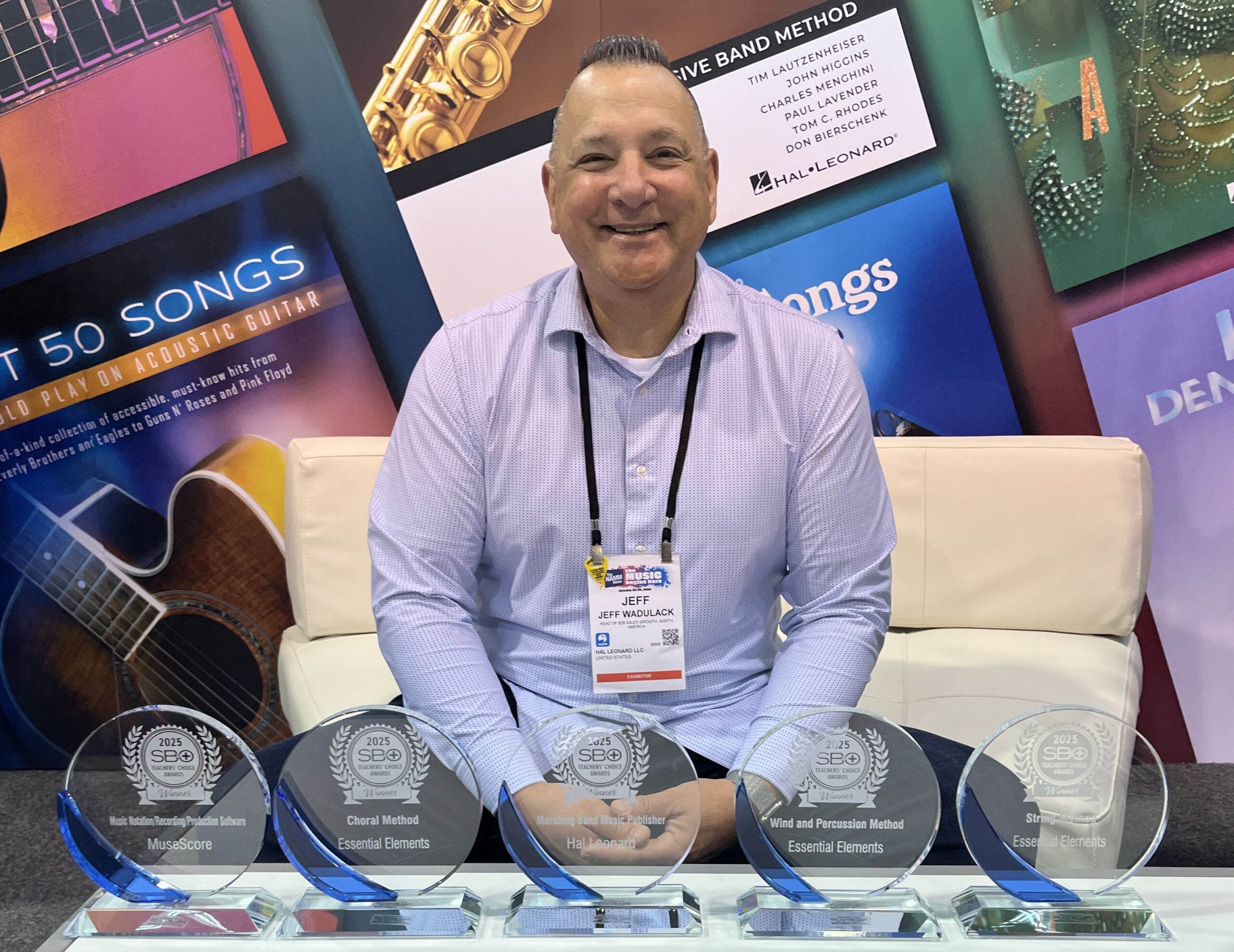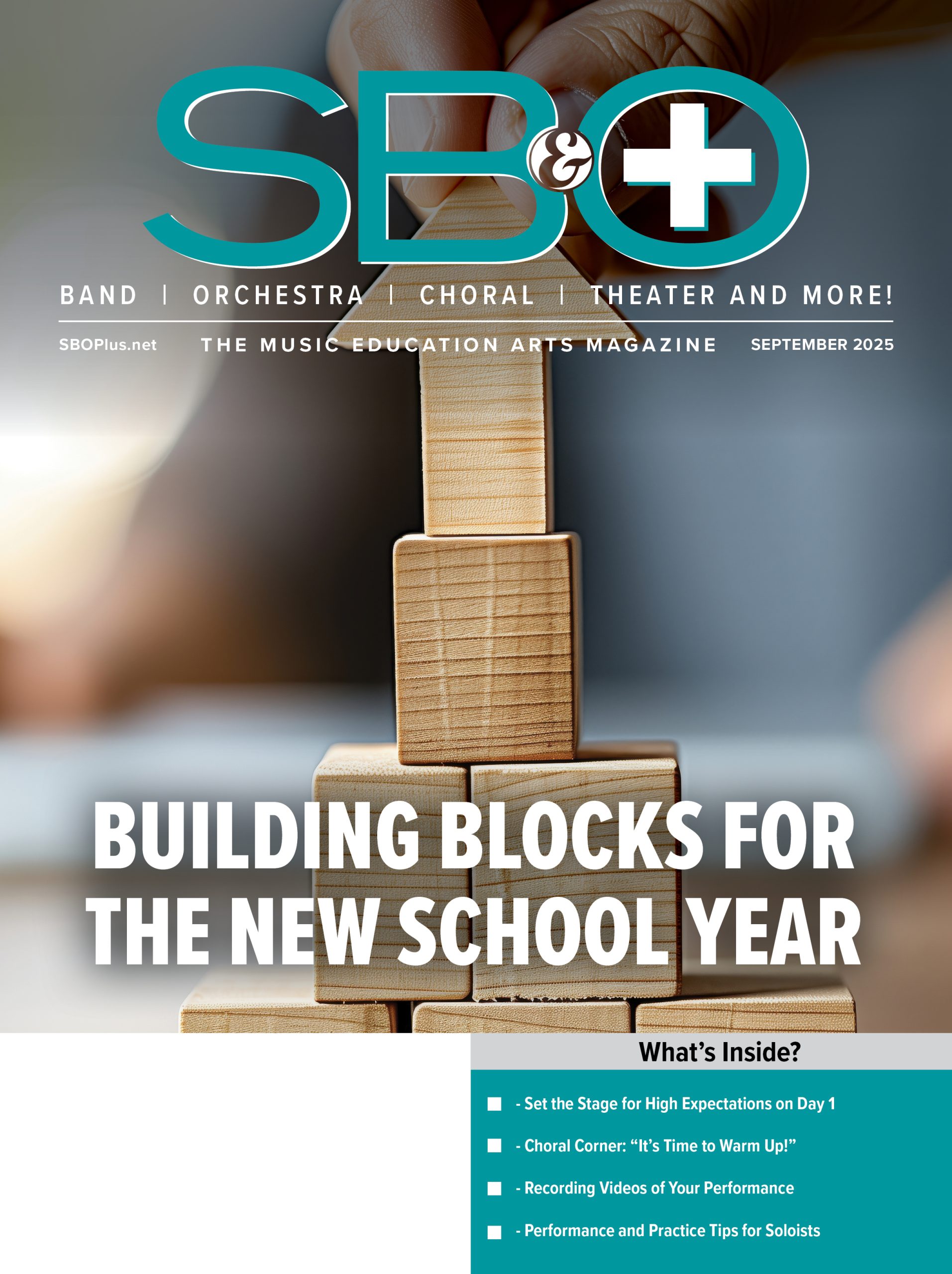
The American society has a fascination with winning. We are taught from a young age that winning is everything, and losing is nothing short of an embarrassing defeat. From sports teams to American Idol, the relentless focus on first place often overshadows any enjoyment of the activity. It is the “winning,” according to Ian Robertson, “that is probably the single most important thing in shaping people’s lives.”
We believe that that competition is good and that it is the best way to measure individual and collective success. While some educators feel that competition is necessary and essential, research shows that a focus on winning can produce negative results. How does competition and the drive to win influence what we do as ensemble directors? Do the benefits outweigh the harmful effects? How can we balance what is best for all students?
Competd the affirmation of our place in the world.”
Yet research has found no clear connection that competition enhances performance and studies show that cooperation actually promotes higher achievement than competition. Duina writes “that winning and losing are artificially and logically flawed concepts that put us at odds with the world around us.” One of the most perplexing aspects of competition is that there is often such an indistinguishable line between winning and losing. One small mistake, in an otherwise flawless performance, can be the difference between winning and losing. And the losers, even those separated by an infinitesimal amount, tend to quickly fade into obscurity. The world remembers the gold medalist, but who can recall any silver medalist who “lost” by a hundredth of a second? The challenge for directors is trying to challenge students while, keeping a healthy balance within the purposes of music education.
Competing as an ensemble is common in many school bands and orchestras and evidenced by the awards that line the walls of music rooms. These accolades pay tribute to the hard work of students and directors and help to create a tradition of excellence. Yet, in Parker Palmer’s book, The Courage to Teach: Exploring the Inner Landscape of a Teacher’s Life, he contends that, “Competition is the antithesis of community; an acid that can dissolve the fabric of relationships.” An approach some directors choose, to avoid competitions that pit schools against each other, is to enter music contests using the international scale (I, II, III) that judge the musical efforts of both director and players.
Within the same school, students often compete against each other, ranked in order of “best” to “worst,” selecting the best players to perform the most difficult music. In the case where multiple ensembles do exist, there is often a tiered hierarchy from the “top” ensemble to the “lowest” ensemble. Too often directors devote their time and adoration to the select ensemble, yet those not selected for the most elite groups, even though a score differential that might be a 0.5 of a point, are relegated as second-class musicians.
 Ensuring reliability and fairness can be problematic in ensemble auditions. Studies show that scores differ greatly when judges see the auditionee, evidenced by the dramatic gender changes in professional orchestras when blind auditions were implemented. To achieve objectivity in auditions, directors can insure that the players are judged with the same criteria and musical materials, with auditions taking place on the same day with the same judges. External evaluators, screens, or audio recordings are also helpful strategies. Multiple assessments, both in frequency and methods of assessment can help to provide accurate measurements. Some directors do not promote a ranked chair placement, but utilize chair rotations and pairing students by strengths and weaknesses, valuing collaboration over competition. An idea worth considering is letting students pick their seats. When the need to “win” is removed, the focus becomes how students can best contribute to their skills to the needs of the musical ensemble.
Ensuring reliability and fairness can be problematic in ensemble auditions. Studies show that scores differ greatly when judges see the auditionee, evidenced by the dramatic gender changes in professional orchestras when blind auditions were implemented. To achieve objectivity in auditions, directors can insure that the players are judged with the same criteria and musical materials, with auditions taking place on the same day with the same judges. External evaluators, screens, or audio recordings are also helpful strategies. Multiple assessments, both in frequency and methods of assessment can help to provide accurate measurements. Some directors do not promote a ranked chair placement, but utilize chair rotations and pairing students by strengths and weaknesses, valuing collaboration over competition. An idea worth considering is letting students pick their seats. When the need to “win” is removed, the focus becomes how students can best contribute to their skills to the needs of the musical ensemble.
When multiple ensembles exist in a school, numerous strategies can be taken to promote a climate of equality:
• Balance instrumentation to avoid overweighing the “top” ensemble with the best players and leaving the “lower” ensemble with insufficient instrumentation
• Rotate or share directors between ensembles
• Have all ensembles participate in performance travel and in adjudications
• Use generic terms such as concert band and symphonic band, or the blue orchestra and the green orchestra
• Describe ensembles as “selective “or “by audition only” which outlines a process, not a hierarchy • Select the same performance attire for every ensemble
• Combine ensembles in a featured work
• Include members of both/all ensembles in social events and special occasions
• Provide equal opportunities for ensembles by programming unique styles of music, featuring a guest artist, or a music commissioning
Teachers have a profound role in guiding student success or failure, and this is partly affected by their own mindset about a student. When a student is considered an achiever, research show that teachers use complimentary language and call on the student more often. In self-fulfilling prophecy studies, teachers were told (falsely) that certain students were very bright. When interacting with these students, teachers smiled more often, stood with a more open body position, and made more eye contact. Students with higher expectations were also given a wider range of classroom activities in which to participate and the “special” students were shown to display significant gains over the control group.
Students want to be associated with a winning team, and when labeled a “loser,” their self-esteem and attitudes toward music can be affected. Teenagers have a great need to be accepted by their peers and being in the “top” ensemble validates a position of importance. Yet the attitudes that are fostered through ensemble competition are not always the most helpful. For these winners, life is good; for those in the “lower ensemble” or the “the leftovers,” they can bear the brunt of belittling comments. It is important to realize that the director is key to the expectations and behaviors that are mirrored by the students and school community.
Motivating students to excel and achieve the highest standards is not an easy task. Perhaps the words of Mikhail Baryshnikov can provide us with some insight, “I do not try to dance better than anyone else. I only try to dance better than myself.”
 Rick Jaeschke began his musical career as a clarinet player in the 1st U.S. Army Band. He received a bachelor of music degree from Susquehanna University, a masters of music from James Madison University, and a doctorate from Columbia University in New York. Currently, Dr. Jaeschke is an associate professor at Augustana College, Rock Island, Illinois, where he teaches music and music education courses and directs the concert band. He has served on various educational boards, is a national edTPA scorer, has presented at state and national conferences, and his articles have appeared in various professional journals.
Rick Jaeschke began his musical career as a clarinet player in the 1st U.S. Army Band. He received a bachelor of music degree from Susquehanna University, a masters of music from James Madison University, and a doctorate from Columbia University in New York. Currently, Dr. Jaeschke is an associate professor at Augustana College, Rock Island, Illinois, where he teaches music and music education courses and directs the concert band. He has served on various educational boards, is a national edTPA scorer, has presented at state and national conferences, and his articles have appeared in various professional journals.
























